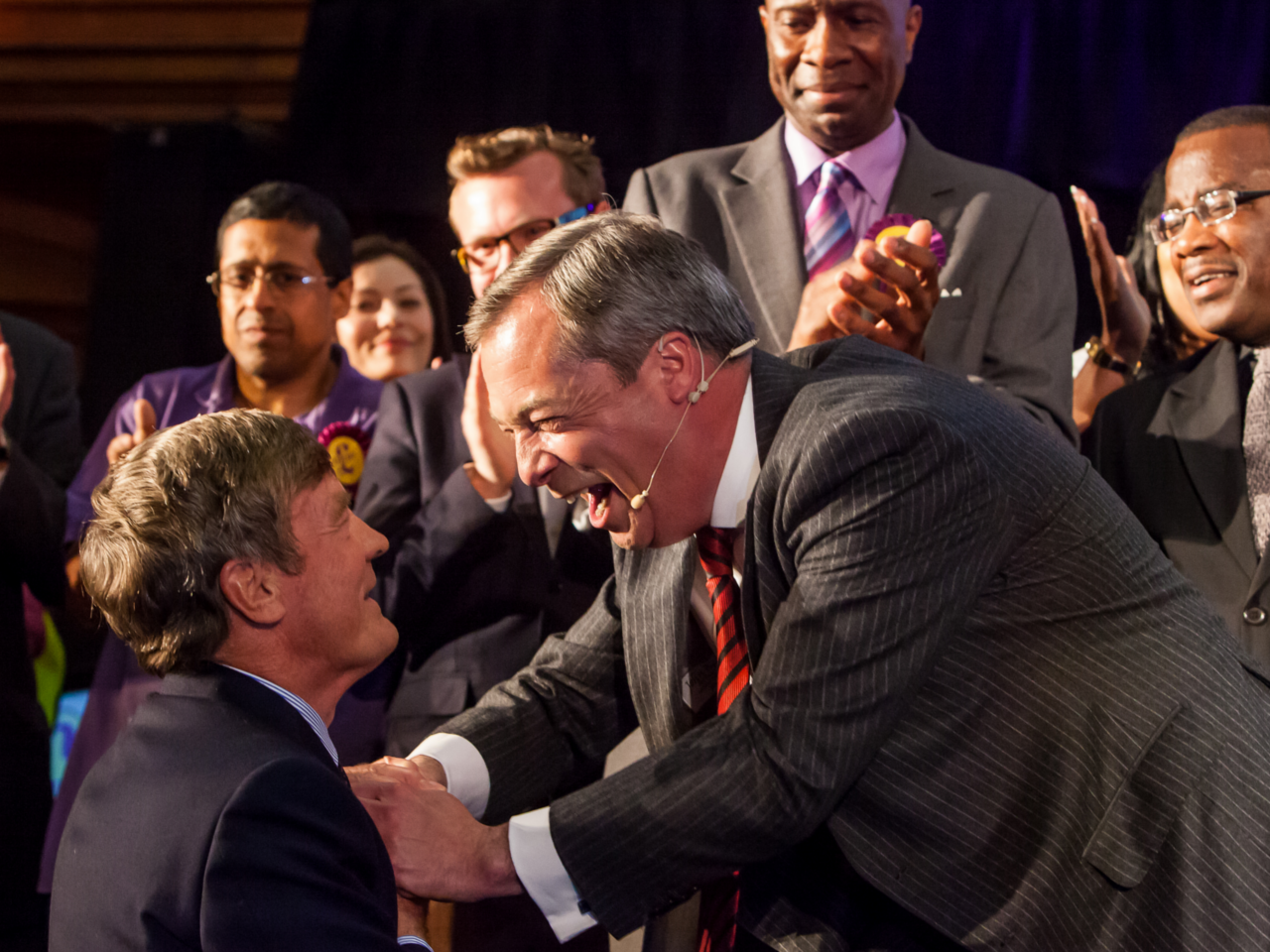
The three main political parties of British politics faced a disappointing night at the local elections after the United Kingdom Independence Party (UKIP) made gains right across the board. As results from 161 of the local authorities in Britain continue to come in, it is clear that 2014 belongs to Nigel Farage.
With one year to go until the General Election, Conservatives, Labour, and the Liberal Democrats had all hoped to consolidate their positions – but these elections have proved bad news for them all. UKIP, often compared to the U.S. Tea Party, had been a fringe party of local government until these elections, relying on defections from other parties to boost their base.
Labour has so far gained around 150 seats, far short of the 400+ that pundits had expected. The Conservatives have lost around 132, which would have been deemed a good result had they not lost control of their flagship council Hammersmith & Fulham (H&F) in West London. H&F was once described by David Cameron as his “favourite” local council because of its large scale tax cuts and reforms.
The Liberal Democrats faced wipe out across the board as they were punished for their role in the coalition government, and their history of failing to stand by their pre-2010 policies. They had also run a pro-European campaign, which may have had an impact on their local result.
The UKIP result is startling because they currently stand at 97 seats, with more to declare. Just one of these seats was previously held by the party. Also, for the first time, they made major gains in Labour’s Northern heartlands, taking seats in places like Hull, Sunderland and Rotherham, all of which had been no-go areas for anyone but Labour for decades.
Outside London most local councils were only electing one third of their seats, so changes in control outside the capital were rare, but the UKIP surge is undeniable. In Rotherham alone they went from just one seat to ten, not enough to take the council but a solid start on next year’s campaign.
Whilst leaders of the established parties took to the airwaves to “learn lessons” from the results, the UKIP leader was jubilant. Nigel Farage claimed that he would use the gains to target around ten to twenty seats in the General Election. He plans to “concentrate UKIP’s fire power” on a small number of House of Commons seat to give him the best chance of getting a parliamentary foothold next year.
On Thursday UK voters also elected members of the European Parliament, but those ballot papers cannot be counted until polls close in every EU member state. They will be counted on Sunday with the declaration at 10pm (GMT), most polls throughout the campaign suggest that UKIP will win overall.

COMMENTS
Please let us know if you're having issues with commenting.